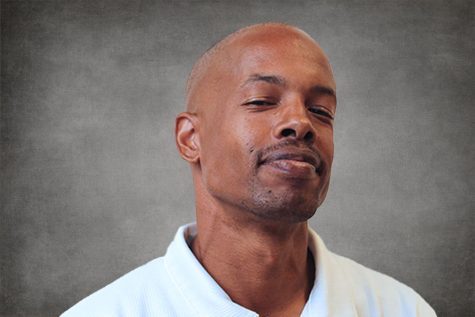Supreme court decision impedes democratic rights
Sep 24, 2014
Last June the U.S. Supreme Court removed the heart of the 1965 Voting Rights Act, allowing states with the worst records of voter misconduct to change their election laws without federal approval.
In light of this recent change, a group discussion was held in HS-101 on Sept. 17, the W.E.B. DuBois Lecture Series.
“The Constitution continues, to this day, to reflect the racist character of the community it represented.
“The past is not dead,” emeritus African-American studies professor Fritz Pointer said.
Other guest speakers during the talk were social science professors Majeedah Rahman and Karl Grant.
Sociology department Chairperson J. Vern Cromartie moderated the panel on the Constitution and the Supreme Court’s decision to roll back a portion of the Voting Rights Act.
Attentive students listened to the trio of professors explain the finer points of systematic oppression, as well as expose the many avenues it used to escape history into our modern society.
Pointer began with a quick overview of the Voting Rights Act, and the injustices that made them a necessity. He adeptly compared late Supreme Court Chief Justice Roger B. Taney, who in a landmark case in 1857, ruled against slave Dred Scott, who was suing his master for freedom in a free state, with current Chief Justice John Roberts.
Roberts recently abolished the safety net that protected minority voters in the most historically problematic sections of the country.
Professor Majeedah Rahman retraced the footsteps trailblazing women took by explaining the mechanics of historic gender-based suppression, and disclosed the partnerships that evolved with different ethnic groups in the quest for equal rights.
Rahman also bonded with the young women in the crowd who confessed they still feel the restraints of gender-based politics.
Grant laid out the finer details of the Supreme Court’s decision. It is intended to remove safeguards established for states with a history of voting misconduct, predominately in the South.
”Anything below the Canadian border is the south,” Grant said.
“It gives the states with the worst records a clean slate.”
Grant also spoke about the modern consequences of not voting.
He referenced elected officials, who were in charge of funding programs that have been known to monitor people through cellphones or watch people through laptop cameras, and said they may have been elected because of a lack of voter participation.
Student Atrix Thomas III said, “It’s important to fight to keep our right to vote as minorities.”
Grant ended the lecture when he asked the students, “What would 50 more years of not voting look like? What kind of potential oppression could be levied upon you?”


